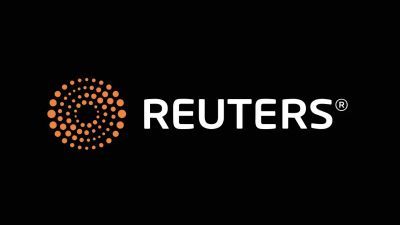Aug 22 (Reuters) - Central bankers from around the world fly into Jackson Hole, Wyoming, this week to attend what has become the globe's premier economic gathering, the Kansas City Federal Reserve's annual symposium in Grand Teton National Park.
The event draws keen investor attention, and - depending on what the world's most influential monetary policymakers say in formal remarks and in interviews on the sidelines - sometimes delivers a rough ride for markets.
Here is a guide on what to expect and why it might be worth paying attention to.
HAWKS AND DOVES
In recent years the guest list of about 120 has included most of the Fed's 19 policymakers, and a few dozen central bankers from Europe, Asia, Africa, the Americas and elsewhere.
Also joining are several dozen economists and officials from academia, government and international organizations as well as the Fed and a few financial institutions, and a cadre of journalists.
Details on each year's attendees and the agenda are closely held until Thursday evening.
A BEAR AND A BUNCH OF PAPERS
The program typically begins Thursday with a dinner served beneath antler-decorated lights at the historic Jackson Lake Lodge. Attendees entering the private dining room pass by a preserved grizzly bear in the lodge's public lounge, which boasts an expansive view of the craggy Teton Range.
The conference goes until midday on Saturday and largely consists of discussions of a series of academic papers. This year's theme is "reassessing the effectiveness and transmission of monetary policy."
Wonkish vibe notwithstanding, many participants make time for a hike - not of interest rates, but of the kind that involves circumnavigating a mountain lake - and some deck themselves out in cowboy boots and other western wear.
ACTION IN JACKSON
The marquee event is Fed Chair Jerome Powell's speech Friday morning.
Investors hope he will give a clearer steer on whether he feels inflation has cooled enough to justify an interest rate cut next month, and if his worries about a rising unemployment rate could make that first reduction in borrowing costs a big one.
Most analysts expect the former and not the latter, but as Deutsche Bank economists note, "it will be difficult for Powell to pre-commit to a particular trajectory at Jackson Hole." Powell has pledged to be data-dependent, and there is lots of economic data before the Fed's Sept 17-18 meeting.
STOCK SHOCKS
Big market moves during the Jackson Hole symposium aren't common, but they do happen.
The S&P 500 (.SPX), opens new tab index lost 3.4% on the day in 2022 when Powell warned that taming the highest inflation in decades could bring pain to households and businesses, a pain that for the most part has not materialized even as inflation has dropped substantially.
The 2.6% decline in the S&P 500 index the day Powell spoke in 2019 owed less to his remarks than to a rapid escalation in U.S.-China trade tensions.
Then-Fed Chair Ben Bernanke helped deliver two Jackson Hole stock rallies. In 2009 he forecast - wrongly as it turned out - an imminent return to global growth after the Global Financial Crisis, and in 2010 promised the Fed would step in with additional bond buying if needed, as it eventually would. The S&P 500 index rose 1.8% the day Bernanke spoke in 2009, and 1.6% a year later.
Jackson Hole speeches can leave a mark even when the stock market barely budges.
In 2020 Powell signaled the U.S. central bank would no longer raise interest rates solely in response to a stronger-than-usual labor market, a remarkable shift from the Fed's historical eagerness to act early to head off inflation. The S&P 500 index rose 0.2% on the day.
THE TROUT
The Kansas City Fed has held its yearly symposium since 1978. Its initial focus was agriculture, but after a few years the organizers decided to broaden the meeting's scope and try to attract bigger names.
In 1982 they moved the meeting to its current location to entice then-Fed Chair Paul Volcker, a devotee of flyfishing, to join.
It worked - Volcker showed up to the opening dinner still in his fishing gear, opens new tab.
Alan Greenspan, who led the Fed from 1987 to early 2006, began in 1991 what is now the annual symposium's hallmark - an address by the leader of the world's most influential central bank.
Reporting by Ann Saphir; Editing by Dan Burns and Paul Simao
